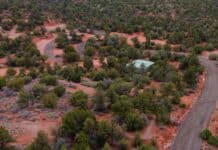Saturday, July 4, marks the 245th anniversary of the signing of the Declaration of Independence.
The declaration is an essay in for parts: The preamble, the Declaration of Natural Rights, the List of Grievances and the Resolution of Independence.
While we treat the declaration as a public pronouncement of our rights and values and the reason for our rebellion, it was not a proclamation to the American people like modern policy speech. Instead, it was a letter addressed from elected leadership of the American colonists to their British cousins, not to other Americans. The Declaration of Independence was a tacit declaration of war and the majority of the document was intended to tell their British cousins about the offenses done to the 13 Colonies by Great Britain, but personally attributing those sins to the person of King George III, not the British state nor its people, prompting a move toward American independence.
In theory, if the British Parliament remedied the extensive complaints and curtailed George’s abuses, a violent rebellion could be reversed, but the realpolitik was the revolution was inevitable and would have to be accepted or crushed. The American insurgency was already well over a year old, numerous pitched battles had been fought in New England and American insurgents had invaded Quebec.
At the time, British citizens and American colonists both had commoners and nobility; the statement was to tell the British that Americans believed all commoners were equal to lords, counts, marquesses, dukes, kings and knights.
The declaration of natural rights begins “We hold these truths to be self-evident, that all men are created equal, that they are endowed by their Creator with certain unalienable Rights, that among these are Life, Liberty and the pursuit of Happiness.”
There were only 3.9 million people in the United States in 1790 and of those, only about 4% to 6% had full voting rights when the Constitution was ratified. The majority of soldiers who served in the Continental Army did not enjoy the voting rights for which they had fought. However, they did believe that having local control and being able to speak in neighborhood public assemblies or at the statehouse was preferable to being ruled by nobles from oversees.
We can see these same values of local control over that of a central government when states resist the federal government or cities like Sedona, Camp Verde or Cottonwood resist control from legislators in Phoenix or county supervisors in Prescott or Flagstaff.
Kentucky was the first state to repeal the property requirement for white men to vote in 1792. North Carolina was the last of the then-existing states to allow all white men to vote in 1856. Freed slaves and nonwhite men, except American Indians, were not given the right to vote until 1870 under the 15th Amendment, though Jim Crow laws and other voter suppression efforts prevented what “should be” from what was.
Women didn’t get the vote until the 19th Amendment in 1920 and American Indians were not granted these same full rights of voting and free speech until the Indian Civil Rights Act was passed in 1968.
The voting age was lowered to 18 in 1971 so that those who were being drafted to fight in Vietnam could have some voice in the decisions that were sending them to war.
The purpose of the declaration was to set the foundation for a country the signers hoped future generations would make better. They themselves did so when they saw the Articles of Confederation, which governed the states from 1781 to 1788, was failing and replaced it with the Constitution in 1787.
Seeing that such documents would need the means to adapt to changing times, the Constitution’s Article V is specifically included to lay out an amendment process. It only took four years for the Constitution to see its first 10 amendments, which were added as a promise to anti- Federalists who worried about a strong central government and the lack of civil liberties.
The bedrock of our most important civil right — free speech — was not even in the original Constitution, but added in 1791 as part of the First Amendment, which also protects newspapers, protests, petitions and separates religion from the state.
The Signers wrote “all men are created equal,” but it’s up to us to bend history toward justice and ensure “all people are created equal and treated equally” under the law.
The Framers wrote in the Constitution’s preamble that the document’s purpose was conceived “in order to form a more perfect union.” That is not a statement of the Framers’ achievement. It is a directive. It is an entreaty. Our founders knew they were flawed by time and circumstance and beg us through history to shape a still-flawed nation into a more perfect union.
— Christopher Fox Graham
Managing Editor

In Congress, July 4, 1776
The unanimous Declaration of the thirteen united States of America, When in the Course of human events, it becomes necessary for one people to dissolve the political bands which have connected them with another, and to assume among the powers of the earth, the separate and equal station to which the Laws of Nature and of Nature’s God entitle them, a decent respect to the opinions of mankind requires that they should declare the causes which impel them to the separation.
We hold these truths to be self-evident, that all men are created equal, that they are endowed by their Creator with certain unalienable Rights, that among these are Life, Liberty and the pursuit of Happiness. That to secure these rights, Governments are instituted among Men, deriving their just powers from the consent of the governed, That whenever any Form of Government becomes destructive of these ends, it is the Right of the People to alter or to abolish it, and to institute new Government, laying its foundation on such principles and organizing its powers in such form, as to them shall seem most likely to effect their Safety and Happiness. Prudence, indeed, will dictate that Governments long established should not be changed for light and transient causes; and accordingly all experience hath shewn, that mankind are more disposed to suffer, while evils are sufferable, than to right themselves by abolishing the forms to which they are accustomed. But when a long train of abuses and usurpations, pursuing invariably the same Object evinces a design to reduce them under absolute Despotism, it is their right, it is their duty, to throw off such Government, and to provide new Guards for their future security. Such has been the patient sufferance of these Colonies; and such is now the necessity which constrains them to alter their former Systems of Government. The history of the present King of Great Britain is a history of repeated injuries and usurpations, all having in direct object the establishment of an absolute Tyranny over these States. To prove this, let Facts be submitted to a candid world.
- He has refused his Assent to Laws, the most wholesome and necessary for the public good.
- He has forbidden his Governors to pass Laws of immediate and pressing importance, unless suspended in their operation till his Assent should be obtained; and when so suspended, he has utterly neglected to attend to them.
- He has refused to pass other Laws for the accommodation of large districts of people, unless those people would relinquish the right of Representation in the Legislature, a right inestimable to them and formidable to tyrants only.
- He has called together legislative bodies at places unusual, uncomfortable, and distant from the depository of their public Records, for the sole purpose of fatiguing them into compliance with his measures.
- He has dissolved Representative Houses repeatedly, for opposing with manly firmness his invasions on the rights of the people.
- He has refused for a long time, after such dissolutions, to cause others to be elected; whereby the Legislative powers, incapable of Annihilation, have returned to the People at large for their exercise; the State remaining in the mean time exposed to all the dangers of invasion from without, and convulsions within.
- He has endeavoured to prevent the population of these States; for that purpose obstructing the Laws for Naturalization of Foreigners; refusing to pass others to encourage their migrations hither, and raising the conditions of new Appropriations of Lands.
- He has obstructed the Administration of Justice, by refusing his Assent to Laws for establishing Judiciary powers.
- He has made Judges dependent on his Will alone, for the tenure of their offices, and the amount and payment of their salaries.
- He has erected a multitude of New Offices, and sent hither swarms of Officers to harrass our people, and eat out their substance.
- He has kept among us, in times of peace, Standing Armies without the Consent of our legislatures.
- He has affected to render the Military independent of and superior to the Civil power.
- He has combined with others to subject us to a jurisdiction foreign to our constitution, and unacknowledged by our laws; giving his Assent to their Acts of pretended Legislation:
- For Quartering large bodies of armed troops among us:
- For protecting them, by a mock Trial, from punishment for any Murders which they should commit on the Inhabitants of these States:
- For cutting off our Trade with all parts of the world:
- For imposing Taxes on us without our Consent:
- For depriving us in many cases, of the benefits of Trial by Jury:
- For transporting us beyond Seas to be tried for pretended offences
- For abolishing the free System of English Laws in a neighbouring Province, establishing therein an Arbitrary government, and enlarging its Boundaries so as to render it at once an example and fit instrument for introducing the same absolute rule into these Colonies:
- For taking away our Charters, abolishing our most valuable Laws, and altering fundamentally the Forms of our Governments:
- For suspending our own Legislatures, and declaring themselves invested with power to legislate for us in all cases whatsoever.
- He has abdicated Government here, by declaring us out of his Protection and waging War against us.
- He has plundered our seas, ravaged our Coasts, burnt our towns, and destroyed the lives of our people.
- He is at this time transporting large Armies of foreign Mercenaries to compleat the works of death, desolation and tyranny, already begun with circumstances of Cruelty & perfidy scarcely paralleled in the most barbarous ages, and totally unworthy the Head of a civilized nation.
- He has constrained our fellow Citizens taken Captive on the high Seas to bear Arms against their Country, to become the executioners of their friends and Brethren, or to fall themselves by their Hands.
- He has excited domestic insurrections amongst us, and has endeavoured to bring on the inhabitants of our frontiers, the merciless Indian Savages, whose known rule of warfare, is an undistinguished destruction of all ages, sexes and conditions.
In every stage of these Oppressions We have Petitioned for Redress in the most humble terms: Our repeated Petitions have been answered only by repeated injury. A Prince whose character is thus marked by every act which may define a Tyrant, is unfit to be the ruler of a free people.
Nor have We been wanting in attentions to our Brittish [sic] brethren. We have warned them from time to time of attempts by their legislature to extend an unwarrantable jurisdiction over us. We have reminded them of the circumstances of our emigration and settlement here. We have appealed to their native justice and magnanimity, and we have conjured them by the ties of our common kindred to disavow these usurpations, which, would inevitably interrupt our connections and correspondence. They too have been deaf to the voice of justice and of consanguinity. We must, therefore, acquiesce in the necessity, which denounces our Separation, and hold them, as we hold the rest of mankind, Enemies in War, in Peace Friends.
We, therefore, the Representatives of the united States of America, in General Congress, Assembled, appealing to the Supreme Judge of the world for the rectitude of our intentions, do, in the Name, and by Authority of the good People of these Colonies, solemnly publish and declare, That these United Colonies are, and of Right ought to be Free and Independent States; that they are Absolved from all Allegiance to the British Crown, and that all political connection between them and the State of Great Britain, is and ought to be totally dissolved; and that as Free and Independent States, they have full Power to levy War, conclude Peace, contract Alliances, establish Commerce, and to do all other Acts and Things which Independent States may of right do. And for the support of this Declaration, with a firm reliance on the protection of divine Providence, we mutually pledge to each other our Lives, our Fortunes and our sacred Honor.
Georgia
Button Gwinnett
Lyman Hall
George Walton
North Carolina
William Hooper
Joseph Hewes
John Penn
South Carolina
Edward Rutledge
Thomas Heyward, Jr.
Thomas Lynch, Jr.
Arthur Middleton
Maryland
Samuel Chase
William Paca
Thomas Stone
Charles Carroll of Carrollton
Virginia
George Wythe
Richard Henry Lee
Thomas Jefferson
Benjamin Harrison
Thomas Nelson, Jr.
Francis Lightfoot Lee
Carter Braxton
Pennsylvania
Robert Morris
Benjamin Rush
Benjamin Franklin
John Morton
George Clymer
James Smith
George Taylor
James Wilson
George Ross
Delaware
Caesar Rodney
George Read
Thomas McKean
New York
William Floyd
Philip Livingston
Francis Lewis
Lewis Morris
New Jersey
Richard Stockton
John Witherspoon
Francis Hopkinson
John Hart
Abraham Clark
New Hampshire
Josiah Bartlett
William Whipple
Matthew Thornton
Massachusetts
John Hancock
Samuel Adams
John Adams
Robert Treat Paine
Elbridge Gerry
Rhode Island
Stephen Hopkins
William Ellery
Connecticut
Roger Sherman
Samuel Huntington
William Williams
Oliver Wolcott



















